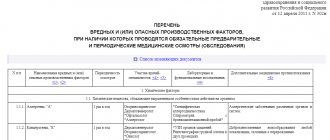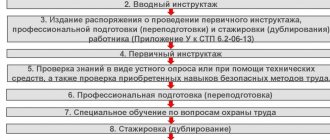The legislative framework
In accordance with Article 12.1 of Federal Law No. 127-FZ of October 26, 2002, a meeting of employees in bankruptcy is held separately from creditors. This refers to those people with whom valid employment contracts were concluded at the time of the introduction of the first procedure.
Employees who have already quit but have not received wages or severance pay may become second-priority bankruptcy creditors. However, the law recommends that a meeting of former employees in bankruptcy be held together with current employees. There will be only one representative from both groups.
Employees, unlike bankruptcy creditors, do not have voting rights. Their participation is necessary, rather, to clarify the financial situation of the debtor. After all, the situation when a company is not even able to pay staff salaries is much more serious than the situation when, for example, it failed to pay a supplier under a major contract.
June 27, 2014 Representative of the debtor's participants in a bankruptcy case: legal status and practice trends
Russian bankruptcy legislation does not provide for the participation of individual participants (shareholders) of the debtor in the bankruptcy case (process). Their interests are represented by a special figure - a representative of the founders (participants) who has an independent legal status.
As noted by A.V. Egorov, “the legislator clearly intentionally limited the founders (participants) themselves in such rights (meaning the rights of persons participating in the bankruptcy case), allowing the vesting of these rights only to one person expressing the collective interest of the founders (participants), their representative "1. Otherwise, a situation is possible when “among the persons participating in the case... there will be more participants of the debtor than his creditors”2. The previously in force Federal Law of 01/08/98 No. 6-FZ “On Insolvency (Bankruptcy)” did not provide for such a figure.
At the same time, the legal status of the representative of the founders (participants) of the debtor is not well developed in bankruptcy legislation, therefore, in practice, questions often arise about his procedural status, election procedure, etc.
By virtue of Art. 2 of the Federal Law of October 26, 2002 No. 127-FZ “On Insolvency (Bankruptcy)” (hereinafter referred to as the Bankruptcy Law), the representative of the founders (participants) of the debtor is:
■ chairman of the board of directors (supervisory board) or other similar collegial management body of the debtor, or
■ a person elected by the board of directors (supervisory board) or other similar collegial management body of the debtor, or
■ a person elected by the founders (participants) of the debtor to represent their legitimate interests during procedures applied in a bankruptcy case.
As you can see, the method of determining the representative of the founders (participants) may be different. But what to do if the participants (shareholders) or the board of directors (another similar collegial management body) have not elected one? The practice of the Supreme Arbitration Court of the Russian Federation indicates an approach according to which if the founders (participants) of the debtor organization or its management bodies have not resolved the issue of electing a representative, the chairman of the board of directors or other similar collegial body is recognized as such3.
This approach, in our opinion, is completely justified and complies with the provisions of the current legislation, since in the absence of a specially selected candidate, Art. 2 of the Bankruptcy Law allows, as a representative of the founders (participants), the chairman of the board of directors (another similar collegial body), who is not specifically elected for these purposes.
At what meeting to elect
If the participants of the debtor company decide to elect a representative, what is the procedure for electing him, since the Bankruptcy Law does not provide for a corresponding procedure?
In practice, participants (shareholders) of the debtor often resort to the mechanism of an extraordinary general meeting provided for in Art. 35 of the Federal Law of 02/08/98 No. 14-FZ “On Limited Liability Companies” (hereinafter referred to as the LLC Law) and Art. 55 of the Federal Law of December 26, 1995 No. 208-FZ “On Joint-Stock Companies” (hereinafter referred to as the JSC Law).
The courts recognize the proper election of a representative of LLC participants by holding an extraordinary meeting4. However, a similar mechanism in JSC is not always recognized as complying with the law. The difference lies in the competence of the general meeting of LLCs and JSCs.
Thus, the competence of the general meeting of LLC participants can be expanded by the charter (clause 1, article 33 of the Law on LLC), while due to the direct instructions of the Law on JSC (clause 3, article 48), the general meeting of shareholders does not have the right to consider and adopt decisions on issues not within its competence by this Law. As the Federal Antimonopoly Service of the North-Western District notes, “Article 48 of the Law on Joint Stock Companies defines a list of issues that fall within the competence of the general meeting of shareholders. The election of a representative of the debtor’s founders (participants) is not one of these issues”5. Thus, due to the specified provisions of the Law on JSC, shareholders cannot directly elect their representative. This clearly does not agree with the meaning of the above provisions of Art. 2 of the Bankruptcy Law.
In this case, the gap in legislative regulation should be recognized. In our opinion, in the absence of special rules regulating the procedure for electing such a representative in a JSC, it is necessary to allow his election by the general meeting of shareholders. Arbitration practice also follows this approach6. The courts in this case proceed from the need for a simple majority of votes at the meeting7. At the same time, arbitration practice allows for the election of a representative of the founders (participants) at the repeated annual meeting of shareholders8.
note
Under certain circumstances, a representative of shareholders at a repeated annual meeting may actually be elected by a shareholder owning, for example, 16% of the company's voting shares.
In addition, if a person is the only participant (shareholder) of the debtor, he has the right to independently represent his legitimate interests in the bankruptcy case9. As the Federal Antimonopoly Service of the North-Western District notes, “if there is acceptable evidence that the debtor has a single participant, the procedural rights and responsibilities of the representative of the debtor’s founders (participants) in the bankruptcy case are exercised by such a single participant”10.
In advance - allowed
The question of at what stage of bankruptcy (under what procedure) a representative of the founders (participants) can be elected is also undisputed. Arbitration practice takes different points of view. For example, as noted by the FAS of the East Siberian District in its resolution dated September 29, 2011 in case No. A69-1862/2009, “The issue of electing a representative of the founders (participants) of the debtor should have been resolved during the monitoring procedure. The Law “On Insolvency (Bankruptcy)” does not provide for resolving the issue of electing a representative of the founders (participants) of the debtor at the stage of bankruptcy proceedings”11.
The opposite position is taken by the Federal Antimonopoly Service of the North-Western District, which allows the election of a representative of the founders (participants) in the bankruptcy procedure12. A similar conclusion is observed in the practice of the Supreme Arbitration Court of the Russian Federation (Determination No. 14691/08 dated December 30, 2008 in case No. A75-4072/2006).
note
The latter approach seems more correct, since due to the absence of the need to notify individual participants (shareholders) of the debtor both about filing a bankruptcy petition and about the introduction of a separate procedure, the latter, for various reasons (including in the presence of a corporate conflict), may not be aware of the business that has begun. It would be unfair not to recognize the rights of participants (shareholders) to elect their representative within the framework of the bankruptcy procedure.
Moreover, from the literal interpretation of paragraph 4 of Art. 37 of the Bankruptcy Law it follows that a representative of the founders (participants) can be elected (appointed) even before filing an application to declare the debtor bankrupt.
The question of whether a representative of the founders (participants) has the right to delegate his powers to another person is also debatable. In arbitration practice, you can find both positive13 and negative answers14. For example, according to G.V. Degtereva, “a systematic interpretation of Art. 2 and paragraphs 3 and 4 of Art. 36 of the Bankruptcy Law does not allow the above-mentioned representatives of the participants (founders) to transfer their powers by proxy”15.
In our opinion, there are no obstacles to recognizing the representative’s right of subrogation in accordance with Art. 36 of the Bankruptcy Law, since his obligation to perform his functions personally does not directly follow from the Law. Moreover, recognizing for other persons participating in bankruptcy proceedings the right to subrogation (for example, for the bankruptcy trustee - by virtue of clause 10 of the resolution of the Plenum of the Supreme Arbitration Court of the Russian Federation dated July 23, 2009 No. 60), it was not to recognize it for the representative of the founders (participants) would be strange.
Without voting rights, but with the right to appeal
What rights does a representative have in a bankruptcy case?
In accordance with paragraph 1 of Art. 35 of the Bankruptcy Law, the representative of the founders (participants) is a person participating in the arbitration process in a bankruptcy case. Consequently, he has the right to familiarize himself with the case materials, make extracts from them, and copy them (clause 3 of Article 35). Similar provisions are enshrined in Art. 50.3 of the Federal Law of February 25, 1999 No. 40-FZ “On the insolvency (bankruptcy) of credit organizations.”
If a representative was elected before the debtor filed a bankruptcy application, a copy of the application should also be sent to the representative (Clause 4, Article 37 of the Bankruptcy Law). In addition, the arbitration court must notify it of the time and place of the meeting to consider the validity of the application to declare the debtor bankrupt (clause 2 of Article 48 of the Bankruptcy Law). To do this, the representative, immediately after election, is obliged to inform the arbitration court considering the bankruptcy case, as well as the arbitration manager, his postal address in the Russian Federation (clause 14 of the Resolution of the Plenum of the Supreme Arbitration Court of the Russian Federation dated June 22, 2012 No. 35 “On some procedural issues related to the consideration of bankruptcy cases bankruptcy"). All negative consequences of failure to notify shall be borne by the representative16.
note
Failure to notify the representative of the founders (participants), who properly notified the arbitration court of his election (appointment), about the trial is an absolute basis for the cancellation of a judicial act in the court of appeal (Part 4 of Article 270 of the Arbitration Procedure Code of the Russian Federation) and cassation (Part 4 of Article 288 Arbitration Procedure Code of the Russian Federation) authorities17.
By virtue of paragraph 1 of Art. 12 of the Bankruptcy Law, a representative of the founders (participants) is a participant in the meeting of creditors without the right to vote. He is also given the right to get acquainted with the documents of meetings of creditors (minutes, voting ballots, etc.). In addition, he has the right to appeal the actions of the arbitration manager, the decisions of the meeting of creditors or the committee of creditors (clause 3 of Article 60 of the Bankruptcy Law).
As part of the monitoring procedure, a representative of the founders (participants) also has the right to raise objections regarding the claims of creditors within 15 calendar days from the date of expiration of the period for presenting claims of creditors (clause 2 of Article 71 of the Bankruptcy Law). In addition, he has the right to appeal the ruling of the arbitration court on the introduction of monitoring in terms of the validity, priority and size of the creditors’ claims (clause 28 of the Resolution of the Plenum of the Supreme Arbitration Court of the Russian Federation dated December 15, 2004 No. 29 “On some issues of the practice of applying the Federal Law “On Insolvency (Bankruptcy)” ").
On the question of whether a representative of the founders (participants) has the right, within the framework of the monitoring procedure, to appeal against individual rulings of the arbitration court on the inclusion of creditors’ claims in the register, there are two directly opposing opinions.
In accordance with the first, the representative does not have the right to appeal such a determination, since in the monitoring procedure he is not a person participating in the bankruptcy case, and such a right is not expressly granted to him by the Bankruptcy Law18. In our opinion, this conclusion is not correct, based on the meaning of the provisions of the Bankruptcy Law regarding the rights of the representative of the founders (participants) within the framework of the monitoring procedure. Therefore, one should agree with the opinion of the Federal Antimonopoly Service of the North-Western District: “At the same time, the appellate court did not take into account that, by virtue of paragraph 2 of Article 71 of the Law, the representative of the founders (participants) of the debtor has the right to present objections to the arbitration court regarding the creditors’ claims. These objections are subject to consideration by the court, which leads to the conclusion that the representative of the founders (participants) of the debtor has the right to appeal judicial acts adopted based on the results of consideration of the creditors’ claims”19.
Such doubts arose earlier in arbitration practice and in relation to the external management procedure. The right of the representative of the founders (participants) to raise objections regarding the claims of creditors, similar to that established in paragraph 2 of Art. 71 of the Bankruptcy Law, enshrined in paragraph 3 of Art. 100 of the same Law - that is, within the framework of the external management procedure.
The Federal Antimonopoly Service of the Central District in its Determination dated November 30, 2010 in case No. A14-17064-2009/64/7b noted that since the Bankruptcy Law does not directly classify the representative of the founders (participants) as a person participating in a bankruptcy case within the framework of an external management procedure20, therefore, he does not have the right to appeal the arbitration court’s ruling to include creditors’ claims in the register.
This position was subsequently corrected by the Plenum of the Supreme Arbitration Court of the Russian Federation, which recognized the representative of the founders (participants) as a person related to the main participants in the bankruptcy case in the external administration procedure (clause 14 of the resolution of June 22, 2012 No. 35 “On some procedural issues related to the consideration of bankruptcy cases bankruptcy").
With the introduction of the bankruptcy procedure, the rights of the representative of the founders (participants) are expanded. By virtue of the direct instructions of paragraph 3 of Art. 126 of the Bankruptcy Law during bankruptcy proceedings, the representative has the rights of persons participating in the bankruptcy case. Accordingly, he has the right to appeal, in particular, judicial acts adopted before the bankruptcy procedure, as well as the decision to declare the debtor bankrupt within the general procedural deadlines (clause 41 of the resolution of the Plenum of the Supreme Arbitration Court of the Russian Federation dated June 22, 2012 No. 35 “On some procedural issues, related to the consideration of bankruptcy cases").
In general, it should be noted that there is no clear certainty in the legal status of the representative of the founders (participants) in a bankruptcy case. Until appropriate additions are made to the Bankruptcy Law or clarifications from the Supreme Arbitration Court of the Russian Federation on the identified problems, uniformity in arbitration practice can hardly be expected.
1 Egorov A.V. Case “Arbitration manager Goncharov V.P. to the founders of Promagrotrade LLC "on the collection of expenses in the bankruptcy case" (resolution dated January 23, 2007 No. 10898/06) // Legal positions of the Presidium of the Supreme Arbitration Court of the Russian Federation: selected resolutions for 2007 with comments / ed. A.A. Ivanova. M., 2012.
2 Ibid.
3 Determination of the Supreme Arbitration Court of the Russian Federation dated December 30, 2008 No. 14691/08 in case No. A75-4072/2006.
4 See, for example, the resolution of the Federal Antimonopoly Service of the North-Western District dated December 29, 2010 in case No. A56-82814/2009 and the resolution of the Federal Antimonopoly Service of the East Siberian District dated February 17, 2011 in case No. A74-3098/2010.
5 Resolution of July 16, 2008 in case No. A56-15647/2007.
6 See, for example, the resolution of the Federal Antimonopoly Service of the East Siberian District dated 03/05/2013 in case No. A10-3819/2009, the resolution of the Ninth Arbitration Court of Appeal dated 11/19/2012 No. 09AP-30352/2012, 09AP-31525/2012 in case No. A40 -114962/11-18-95B.
7 See, for example, the resolution of the Federal Antimonopoly Service of the North-Western District dated 02/06/2012 in case No. A56-46617/2010.
8 Resolution of the Eighth Arbitration Court of Appeal dated 08.08.2011 in case No. A46-2170/2011, Determination of the Supreme Arbitration Court of the Russian Federation dated 17.01.2012 No. VAS-17379/11 in case No. A46-2170/2011.
9 Resolution of the Federal Antimonopoly Service of the Volga District dated October 10, 2013 in case No. A12-11822/2010.
10 Resolution of the Federal Antimonopoly Service of the North-Western District dated March 11, 2013 in case No. A13-2962/2010. Similar position: resolution of the Federal Antimonopoly Service of the West Siberian District dated June 10, 2011 in case No. A03-6321/2009.
11 Similar practice: resolution of the Federal Antimonopoly Service of the Volga District dated July 2, 2013 in case No. A55-6264/2010.
12 Resolution of the Federal Antimonopoly Service of the North-Western District dated June 28, 2012 in case No. A56-81131/2009.
13 Determination of the Federal Antimonopoly Service of the West Siberian District dated September 17, 2010 in case No. A75-8137/2008, resolution of the Tenth Arbitration Court of Appeal dated December 3, 2013 in case No. A41-27048/10.
14 Resolution of the Eighteenth Arbitration Court of Appeal dated August 27, 2012 No. 18AP-7802/2012 in case No. A07-23238/2011.
15 Degtereva G.V. Rights of the founders and management bodies of the debtor // Arbitration manager. 2011. No. 2.
16 See, for example, the decision of the Second Arbitration Court of Appeal dated November 6, 2013 in case No. A17-3398/2012.
17 See, for example, the resolution of the Federal Antimonopoly Service of the North-Western District dated April 15, 2008 in case No. A56-26312/2006.
18 Resolution of the FAS of the Central District dated July 15, 2011 in case No. A08-5718/2010-22B, Determination of the FAS of the Far Eastern District dated December 23, 2010 No. F03-9837/2010 in case No. A59-6230/2009, resolution of the FAS of the Ural District dated 03.03. 2004 No. F09-416/04-GK in case No. A07-18867/02.
19 Resolution of the Federal Antimonopoly Service of the North-Western District dated December 13, 2011 in case No. A56-81131/2009.
20 Similar position: resolution of the FAS Far Eastern District dated October 22, 2007 No. F03-A73/07-1/4111 in case No. A73-326v/2007-39, A73-17766/2005-39, resolution of the FAS Volga District dated May 12, 2011 case No. A12-4561/2009.
Authors: Dmitry Tugushi, advisor; Roman Krylov, lawyer at Egorov, Puginsky, Afanasyev and Partners.
Rules for holding meetings
Notification of the meeting of the debtor's employees in bankruptcy is sent by the arbitration manager at least ten days before the appointed date. You can do this:
- by mail, if the staff includes less than one hundred people;
- by placing an announcement in the Unified Federal Register of information about bankrupt organizations, if there are more than 100 people;
- through the EFRSB, if the staff is less than 100 people, but their addresses are unknown.
The event can be held both in person and in absentia. If a meeting of the debtor’s employees in bankruptcy is held in absentia, the participants are given voting ballots in advance. Accordingly, the validity of a meeting will be determined either by the number of people present or the number of applications received.
Representative in the arbitration court: what is his role in the bankruptcy of enterprises?
Legitimate activity focused on making a presented optimal solution is called representation. A person acting on behalf of a client in the courtroom pursues the goal of protecting his interests as a participant in the dispute under consideration. When a bankruptcy dispute is initiated, each of the interested parties may have a representative in the arbitration process. The arbitration representative must protect the client in the process and help him in the future, in the exercise of rights and performance of obligations. Thus, procedural representation is characterized by protecting the client and carrying out legal actions on his behalf in court. Considering the legal status of the representative (let us consider this concept as a set of rights and obligations, together with responsibility), this participant in the process is bound by the scope of his powers and cannot go beyond their limits. If the representation had a contractual basis, the representative in the arbitration process is paid a pre-agreed fee. Under certain circumstances, he is reimbursed for personal expenses that he incurred in the arbitration process when considering bankruptcy disputes.
On what basis does representation arise?
The criterion for dividing representation by type is the grounds for its occurrence: 1. Legal. It follows from the norms of the law and is not entrusted to an external representative. Examples of legal representation: * protection of powers by employees of the organization * protection by the head of the organization
When liquidating enterprises, an employee of a special commission (liquidation) or the liquidator himself acts on their behalf. In case of bankruptcy of enterprises or organizations, an arbitration manager comes into play. He may be called an external manager, temporary manager, bankruptcy manager (depending on which procedure is used).
2. Negotiable. Conditioned by the will of the client. This representation is based on the signing of contracts: agency or commission. This representation can only arise by agreement of the parties.
Contents of the notice
Part 3 of Article 12.1 contains a list of data that must be provided in this document:
- form (full-time or part-time);
- date and time;
- place, if different from the debtor's address;
- agenda.
Additionally, for clarity, it is worth indicating the initiator (the bankruptcy trustee) and any information that is important for preparing for the event, for example, a sample minutes of a meeting of the debtor’s employees in bankruptcy - for the appointment of a representative.
Representative in arbitration proceedings: legal status.
When considering cases in arbitration, representatives of citizens and organizations are: * lawyers; * lawyers; * specialized legal companies.
All representatives of the parties must be endowed with legal personality. In addition, they must provide the court with powers documented in documentary form. The following cannot act as representatives: * prosecutors; * judging panel; * notaries; * incompetent persons.
Disputes regarding the insolvency of organizations or companies are considered with the assistance of their bodies in accordance with the structure and entries in the constituent documents. If the process of liquidation of an organization is underway, then a representative who is part of the liquidation commission acts on behalf of the legal entity. Companies can also be represented by other persons on their staff, as well as lawyers.
Competence of representatives in arbitration proceedings
Powers, that is, rights and obligations in combination, are documented. The head of the organization submits to the judge documents describing his official status in the organization. Legal representatives are documents that set out their rights and obligations to act on behalf of another person. Lawyers must have a warrant that gives them the right to carry out clients’ orders. This document is issued to lawyers in accordance with the professional education of a lawyer. Other representatives secure powers with a power of attorney.
Competence of representatives: general and special
The representative performs procedural actions of a general nature regardless of their indication in the text of the power of attorney. Example of general powers: * familiarization with documents from the case; * bends; * research of the evidence base, etc.
Special powers are limited by the text of the power of attorney or other document. The latter is usually represented by two types of contracts: agency or mandate. Special powers include: * signing a claim or withdrawing claims; * refusal of the claim in whole or in part, etc.
The court can verify the powers of the representative enshrined in the document through careful analysis and research of the information specified in them. If the court sees the need for this, documents evidencing the authority of the representative are attached to the case, and information about them is reflected in the minutes kept by the secretary at the court hearing. If the judge has doubts about the documents, he may also require other documents confirming the competence of the representative.
Representative in arbitration proceedings on bankruptcy disputes: on the basis of what document does this specialist work?
The mentioned Federal Law in Article 36 stipulates the existence of a document on the basis of which the representative in the arbitration process conducts his work on disputes regarding the insolvency of entrepreneurs. In particular, the article of the same name indicates a power of attorney. The power of attorney is issued by the head of the legal entity.
Power of attorney to conduct bankruptcy cases
A power of attorney is drawn up in the form of a written document. Within its framework, the defender acts exclusively within his special competence. The document must meet the requirements of Article 61 of the APC: it must reflect an exhaustive list of the representative’s powers. If the document was issued by a citizen, it is certified by a notary. If the power of attorney is issued by an organization, it is certified by the head and marked with the seal of the legal entity. The power of attorney is submitted to the court. If you need to contact the bailiff service, then you need to make a copy of the power of attorney, since one copy is given to the bailiff responsible for conducting enforcement proceedings.
Rights and powers of the employee representative in a bankruptcy case
He does not have the right to apply to the arbitration court or appeal its acts. It is not a party to the debtor's insolvency proceedings. The powers of the representative are limited to the following list:
- monitor the progress of the process;
- speak at a meeting of creditors without the right to vote;
- receive documents for review;
- submit applications addressed to the arbitration manager;
- go to court if you disagree with its decisions and actions.
At the same time, his candidacy must be approved collectively. If one of the employees receives more than half the votes, the approval protocol is transferred to the arbitration manager.
Sample notification
Employee rights depend on the bankruptcy procedure being carried out
Question from Clerk.Ru reader Svetlana (St. Petersburg)
I would be grateful for advice on step-by-step actions for bankruptcy of an LLC with debt to employees. What actions will be legal and effective?
When an enterprise goes bankrupt, the rights of employees depend on the bankruptcy procedure being carried out. If bankruptcy recovery procedures are introduced at an enterprise, such as monitoring, financial rehabilitation and external management, the likelihood of receiving wages is high. When introducing bankruptcy proceedings, the issue of the need to preserve the production activities of the debtor enterprise is considered by a meeting of creditors.
Regardless of the decision of the meeting of creditors, the Bankruptcy Law imposes on the bankruptcy trustee the obligation, within a month from the date of commencement of bankruptcy proceedings, to warn the debtor’s employees about the upcoming dismissal at least two months in advance. Before the expiration of a two-month period, termination of an employment contract with an employee is possible only with the written consent of the employee. The law limits the right of each employee to participate individually in the bankruptcy proceedings of the debtor employer. Employees are not personally summoned to the arbitration court, are not invited to participate in meetings of creditors, etc.
Their representative is called upon to protect the interests of employees - a person authorized by the debtor’s employees to represent their legitimate interests during the procedures applied in a bankruptcy case. Such a representative is elected at a general meeting of employees of the debtor enterprise. His powers are confirmed by the minutes of such a meeting, which are submitted to the arbitration court, as well as to the arbitration manager.
Step one: elect a worker representative.
The legislation vested the representative of the debtor's employees with certain powers. He has the right to participate in meetings of the arbitration court, in meetings of creditors without the right to a casting vote, speak on the agenda of meetings and inform creditors and other persons participating in the bankruptcy case about the position of employees on specific issues, apply to the arbitration court for permission disagreements arising with the arbitration manager and related to the composition and amount of claims for the payment of severance pay and wages of persons working under employment contracts.
Step two: we receive information from the representative about the progress of bankruptcy.
Step three: if there is insufficient information, we send written requests to the bankruptcy trustee at a specific address (in the office, others at the place of residence). The founders of the debtor must bear full responsibility to the employees of the enterprise for non-payment of wages. If the demands of the debtor's employees were not satisfied at the expense of the bankruptcy estate, the employees should have the right to file an application to hold the founders vicariously liable even after the completion of bankruptcy proceedings.
Step three: we go to court with an application to bring the founders to subsidiary liability.
Step four: contact the prosecutor's office.
The perpetrators in such cases bear responsibility under current legislation. Administrative responsibility is one of the types of responsibility established by the state. Administrative offenses in the field of bankruptcy, liability for which is provided for in Articles 14.12 and 14.13 of the Code of Administrative Offenses of the Russian Federation, must be suppressed, including on the basis of reports from citizens and the media. Individual employees of the debtor enterprise can individually or collectively file a complaint against the actions (inaction) of the arbitration manager to a self-regulatory organization of arbitration managers, to law enforcement agencies, to state authorities or local self-government.
It’s very easy to get a personal consultation with Larisa Chekhovskikh online - you just need to fill out a special form. Several of the most interesting questions will be selected daily, the answers to which you can read on our website.
Rights and obligations of participants in the procedure
Each of the parties involved in the procedure has its own legal status. Depending on it, she receives certain rights and is endowed with responsibilities.
The debtor may:
- initiate recognition of financial insolvency;
- conduct current activities taking into account the imposed restrictions;
- get acquainted with the conclusion of the temporary manager;
- challenge a court decision that does not satisfy the company in the manner prescribed by law.
At the same time, he is obliged:
- comply with the restrictions imposed;
- coordinate your actions with the temporary manager;
- do not interfere with his work, provide the requested documents and information upon request;
- pay the costs of the process.
Creditors have the right:
- submit an application for inclusion in the register;
- participate in the meeting;
- choose a manager;
- if necessary, appeal his actions or inaction in court.
In doing so, they must:
- provide the manager with reliable information;
- document the validity of the requirements.







